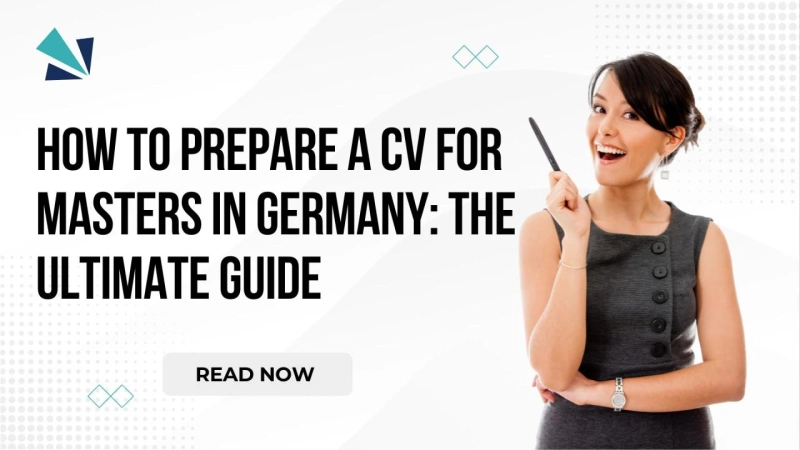Aspiring to pursue a Master's degree in Germany is an exciting endeavor, and one of the key elements in your application package is your Curriculum Vitae (CV). Crafting a well-structured and compelling CV is crucial to showcase your qualifications and stand out from the competition. In this comprehensive guide, we'll walk you through the essential steps on how to prepare a CV tailored for Masters studies in Germany.
For More Info Visit: MBA in Germany for Indian students
Start with Personal Information:
Include your full name, contact details, and a professional-looking email address at the top of your CV. Ensure that your information is up-to-date and easily accessible.
Profile Summary:
Begin your CV with a concise profile summary. This section should highlight your key qualifications, academic background, and career aspirations. Keep it brief but impactful, providing a snapshot of who you are as a candidate.
Academic Qualifications:
List your academic qualifications in reverse chronological order, starting with your most recent degree. Include the name of the institution, location, degree earned, major, and graduation date. If applicable, mention your GPA or relevant academic honors.
For More Info Visit: MS in industrial engineering in Germany
Thesis or Research Project:
For Master's programs, especially research-based ones, include a section highlighting your undergraduate thesis or any significant research projects. Briefly describe the topic, methodology, and outcomes, showcasing your research capabilities.
Relevant Courses:
Provide a section listing relevant courses you've taken during your undergraduate studies. This helps demonstrate your academic focus and expertise in the field of study you're pursuing at the Master's level.
For More Info Visit: ms in management in germany
Language Proficiency:
Clearly indicate your proficiency in languages, especially in English and German if applicable. Use standardized language proficiency scales, such as the Common European Framework of Reference for Languages (CEFR), to convey your language skills accurately.
Work Experience:
Outline your work experience, emphasizing roles that are relevant to your chosen Master's program. Include the name of the company, your position, duration of employment, and a brief description of your responsibilities and achievements.
Internships and Volunteering:
Highlight any internships or volunteering experiences that demonstrate your practical skills and commitment to your field of study. Focus on experiences that align with the specific requirements of your Master's program.
Skills:
Create a dedicated section for your skills, both technical and soft skills. Tailor this section to align with the program's requirements and industry expectations. Include proficiency in relevant software, programming languages, and other technical competencies.
For More Info Visit: Best University in Germany for Masters
Extracurricular Activities:
Showcase your involvement in extracurricular activities, such as clubs, societies, or community service. Highlight leadership roles, responsibilities, and achievements to demonstrate a well-rounded personality.
Certifications and Training:
Include any certifications or additional training relevant to your field of study. This could include language certifications, professional development courses, or workshops that enhance your skills and knowledge.
Publications and Conferences:
If you have published academic papers, attended conferences, or presented research, create a section to showcase your contributions to the academic community. Include details such as the title, conference/journal name, and publication date.
Hobbies and Interests:
Conclude your CV with a section on hobbies and interests. This personal touch provides insight into your personality and can serve as an icebreaker during interviews.
Formatting and Design:
Keep your CV clean, organized, and easy to read. Use a professional font, maintain consistent formatting, and ensure that your CV is tailored to fit within two pages.
Proofread:
Before submitting your CV, thoroughly proofread it to eliminate grammatical errors, typos, and inconsistencies. Consider seeking feedback from peers or mentors to ensure clarity and effectiveness.
For More Info Visit: Study Abroad Consultant in Gurgaon
Conclusion:
Crafting a compelling CV for Masters studies in Germany requires a thoughtful approach and attention to detail. By following this ultimate guide, you'll create a standout document that effectively communicates your qualifications, experiences, and aspirations to the admissions committee. Remember, your CV is a reflection of your academic and professional journey, so take the time to make it a true representation of your excellence and potential in the academic realm.



